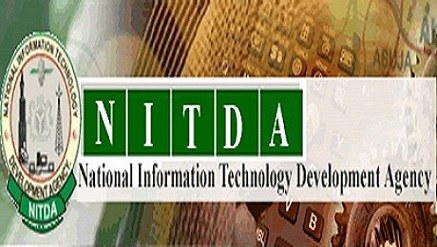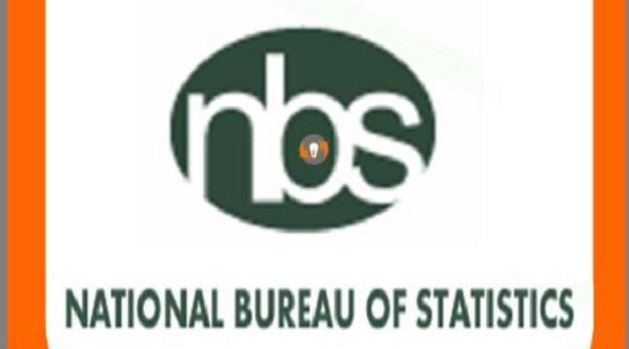E-Business
UNIBEN VC Urges Governments to Set up Innovation Villages

Prof. Faraday Orumnwense, Vice-Chancellor, University of Benin (UNIBEN), has called on governments at all levels to invest more in science and technology in order to boost skill acquisition.
Orumnwense, who made the call on yesterday in Abuja at the “Civil Society Dialogue with Stakeholders on Education’’, called for establishment of technology and innovation villages.
The dialogue was organised by the 1st Initiative for Leadership and Economic Watch in Nigeria.
The theme of the dialogue is “Knowledge as the Engine of 21st Century Economic Growth: Reforming the System in Nigeria.’’
Orumnwense , who was represented by Prof. Jacob Ehirobo, Deputy Vice-Chancellor, Administration, UNIBEN, said the modern world was driven by knowledge-economy.
“Large corporations should set up specialized institutions where people are trained for specialized skills in production after graduation as it is done in other climes.
“There should be a strong synergy between the academia and the industries; industrial parks should be established in universities.
“The government should invest more in science and technology and should as a matter of deliberate policy set up technology and innovation villages.
“The government should increase funding to tertiary institutions and research institutes as well as establishment of centres of excellence to research into critical areas of national needs,’’ he said.
Mr Agbonkponlor Splendour, the Execuitve Director, 1st Initiative for Leadership and Economic Watch in Nigeria, who spoke, said the essence of dialogue was to improve the education sector.
He said that Nigeria’s education sector lacked capacity to impact skills on graduates.
“Our graduates cannot compete favourably in the labour market because of lack of skills. The essence of this is to deliberate on how to empower Nigerian students to be at same level with their peers abroad,’’ he said.
In a remark, Dr Paddy Njoku, President, International Institute of Leadership and Governance, urged Nigerian youths to be wary of those inciting them to violence.
He said students should strive to break grounds instead of always blaming the government for the state of Nigeria’s education sector.
E-Business
Senate Passes Bill to Re-enact NIMC Act

The Senate has passed a bill, seeking to repeal and re-enact the National Identity Management Commission (NIMC) Act.

This followed adoption of report of Committee on National Identity Card and Population at plenary on Wednesday.
The report was presented by Senator Victor Umeh (LP-Anambra), chairman of the committee.
Senator Umeh in his presentation said the bill sought to provide for the establishment of a national identity database and the National Identity Management Commission.
According to him,the agency will be charged with responsibilities for maintenance of national database, the registration of individuals and the issuance of identity credentials.
He said the bill would lead to the creation of national identity database to source business biometric and empower NIMC to issue regulations and guidelines for implementation of the act and other related matters.
He said the bill sought to strengthen the legal framework of national and digital identity, hereby creating an optimal foundational identification ecosystem that fosters inclusion, universal coverage, and accessibility.
Senator Umeh said the act would establish a harmonious foundational identity system that is governed by a less restrictive, less cumbersome, non-discriminatory, non-punitive data protection, cost-effective, and compliance with global borders.
Senator Umeh said the bill, when passed into law, would address the challenges and limitations of national Identity management commission Act 2007, repeal it, and then close the gap of incomplete and inaccurate national identity database, provide efficient governance and service delivery.
He said the bill received overwhelming support from stakeholders at the public hearing due to the need to implement the long-awaited database system.
E-Business
World Bank Expresses Concern over Nigeria’s Poor Data, Statistics Quality

The World Bank has expressed concern over Nigeria’s poor statistical performance, noting that the country lags behind its aspirational peers such as Mexico, Colombia, South Africa and Brazil.

Mrs. Julie Osagie-Jacobs, director, Information and Public Relations, Ministry of Budget and Economic Planning, stated this in a statement after a courtesy visit to Senator Abubakar Bagudu, minister of Budget and Economic Planning, by a delegation from the World Bank led by Ndiame Diop, country director; and Mr Johan Mistiaen, practice mfor West and Central Africa, on Wednesday.
In his presentation titled “Next Level Statistics to Support Nigeria’s Reform and Growth Agenda,” Mistiaen stated that Nigeria’s statistical system was not on par with those of its developmental counterparts.
He advised that an annual investment of between $10m and $15m in the country’s statistical infrastructure would significantly improve performance and align Nigeria with its peers.
The statement read in part, “Earlier, Mr. Johan Mistiaen in his presentation on the next level statistics to support Nigeria’s reform and growth agenda, observed that the country’s statistical performance was not at par with its aspirational peers as Mexico, Colombia, South Africa and Brazil.
“He suggested that investing about $10-15m annually into the country’s statistical system can raise performance to that of its aspirational peers.”
Responding, Bagudu assured that the Federal Government would continue to guarantee the independence of the National Bureau of Statistics.
He commended the Bureau for consistently releasing credible and methodical data that have been relied upon by reputable international organisations.
The minister stressed that there would be no government interference in the operations of the NBS.
E-Business
FG Plans to Link Social Register to NIN for Humanitarian Crisis

Federal government has disclosed that efforts are ongoing to link the National Social Register (NSR) to the National Identity Numbers (NIN).

Prof. Nentawe Yilwatda, minister of Humanitarian Affairs and Poverty Reduction, explained that the linked data would assist the country to anticipate crises, mobilize resources faster, and ensure aid reaches those who need it the most.
He said harnessing data would save the country and relevant stakeholders the stress and bottlenecks of outdated processes.
He also identified bureaucratic crisis as the biggest crisis in the humanitarian space which stalls responses to humanitarian issues.
Speaking in Abuja on Tuesday at the National Humanitarian Roundtable programme, the minister said: “People are traumatized by climate change, security threats and economic shock across the country and in the midst of these, we have limited funding.
“The biggest crisis we have is not just the people being killed, the crisis we have is a bureaucratic crisis that does not respond to a humanitarian crisis. Every delay in decision making, every inefficiency in coordination, every shortfall in funding, costs the life of people.
“They say knowledge is power, but knowledge can be destructive too. It can only be power if we use it effectively. By leveraging data and technology, we can anticipate crises; we can mobilize resources faster and ensure aid reaches those who are in need the most and without the bottleneck of outdated processes.
“We are linking the social register to national identity numbers and geotagging all homes of those who are vulnerable across the country so that if there’s any crisis, we don’t need to begin to walk around communities and taking names and asking the States Emergency Management Agency and the National Emergency Management Agency (NEMA) for data.

 News2 days ago
News2 days agoPolice Arrest 4 Bank Staff over Alleged ₦270m Fraud, Money Laundering

 E-Financial2 days ago
E-Financial2 days agoUBA Grows Profit to ₦804Bn, Declares N3 Kobo Final Dividend

 E-Business2 days ago
E-Business2 days agoNIMC to Prosecute Nigerians Printing ‘NIN Cards’, Says Only Slip is Legal

 E-Business2 days ago
E-Business2 days agoUnleashing Nigeria’s Business Potential: The Cloud as Catalyst for Growth

 Telecom2 days ago
Telecom2 days agoOpen Access Fabrics Set to Drive Connectivity to Achieve a Digital Economy

 General News2 days ago
General News2 days agoAuthorities Seize 1842 Devices in African-Wide Cybercrime Crackdown

 Telecom2 days ago
Telecom2 days agoMTN Nigeria and Pan-Atlantic University Invite Media Practitioners for 4th Media Innovation Programme

 E-Financial2 days ago
E-Financial2 days agoEnza Raises $6.75m Seed Funding to Boost Embedded Payment Solutions Across Africa



















